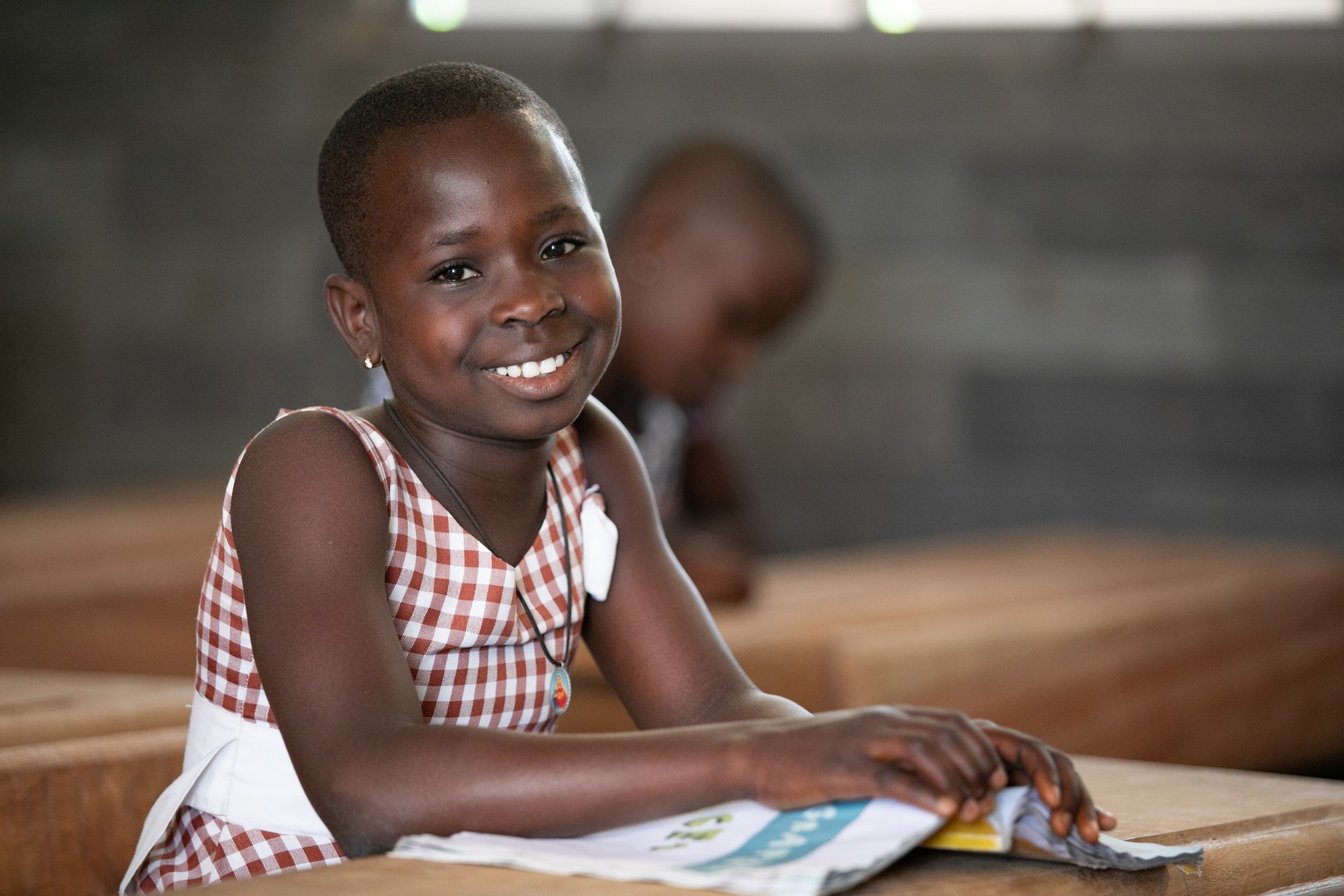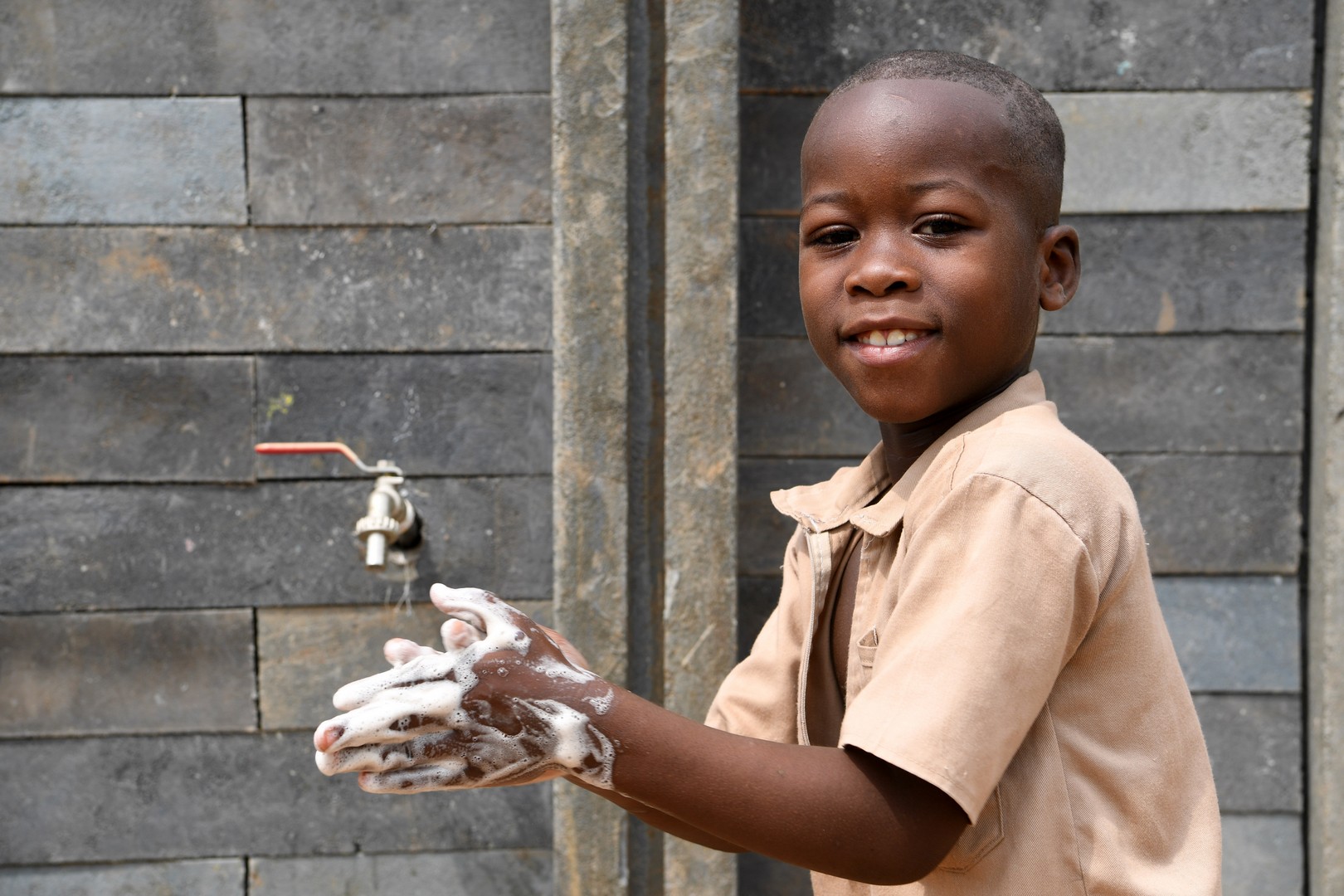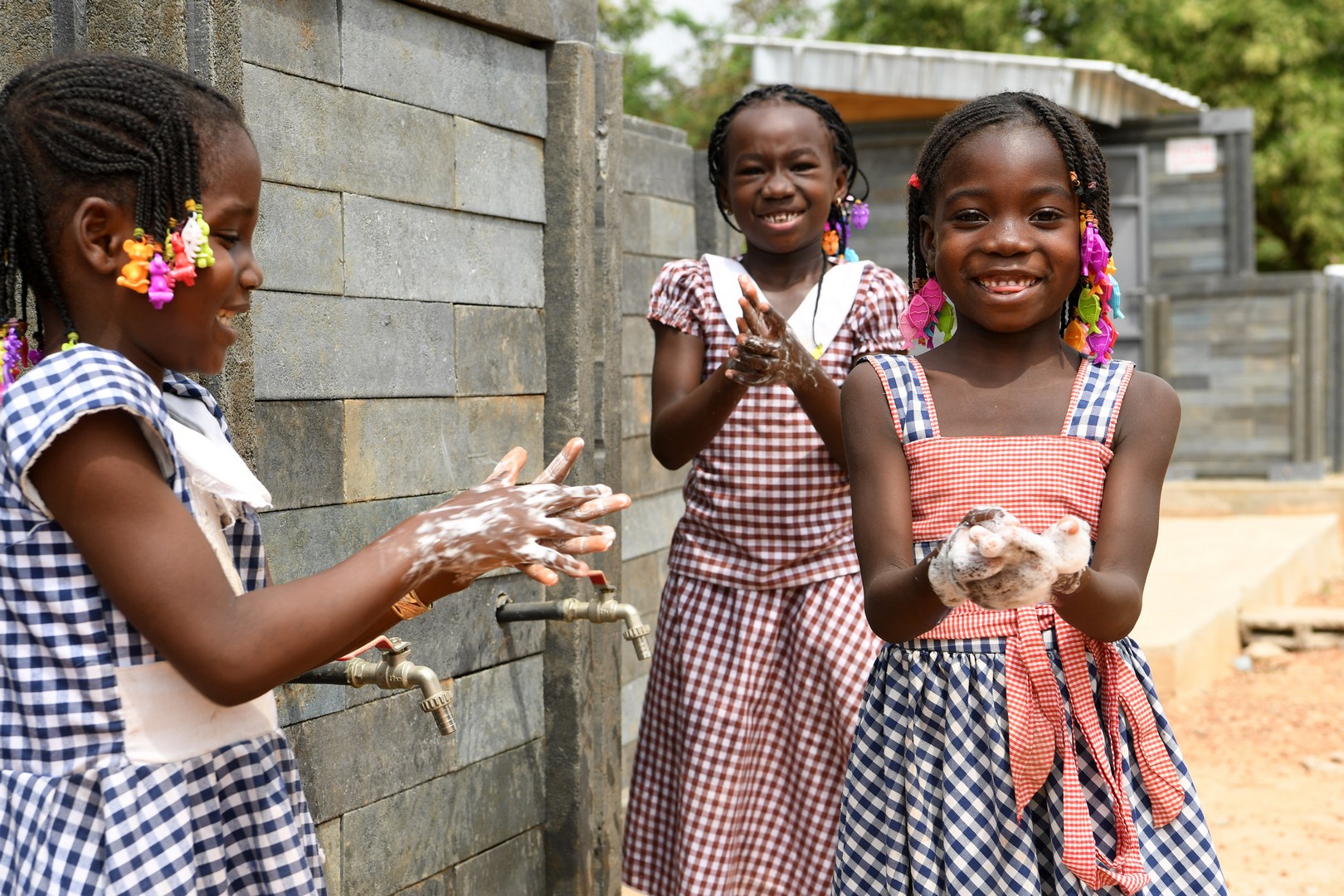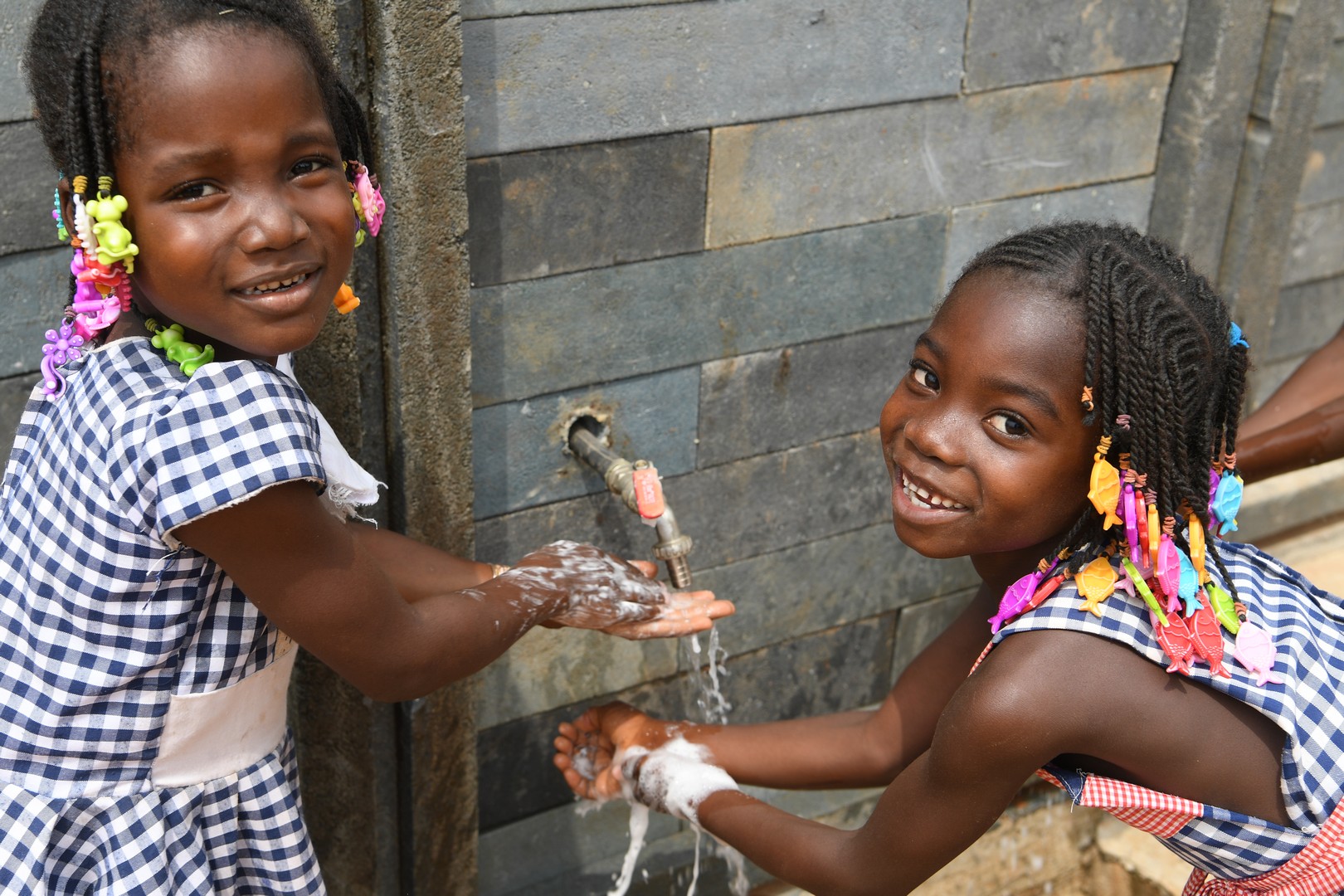Kabadougou region, Côte d’Ivoire
In collaboration with

September 2022 – December 2024
Ensure a safe and healthy school environment and adequate water, sanitation, and hygiene facilities for school children residing in the Kabadougou region. Guarantee the education of girls and adolescents, in addition to teacher training. Use the recycling of plastic waste to build schools.
Objectives
- Construction and rehabilitation of water, sanitation, and hygiene facilities.
- Strengthening capacities for good management and care of the facilities and hygiene.
- Hygiene support in schools.
Beneficiaries
924 direct
900 students (all under 15 years of age and 462 women) and 24 teachers.
4.200 indirectos
The school community as a whole.
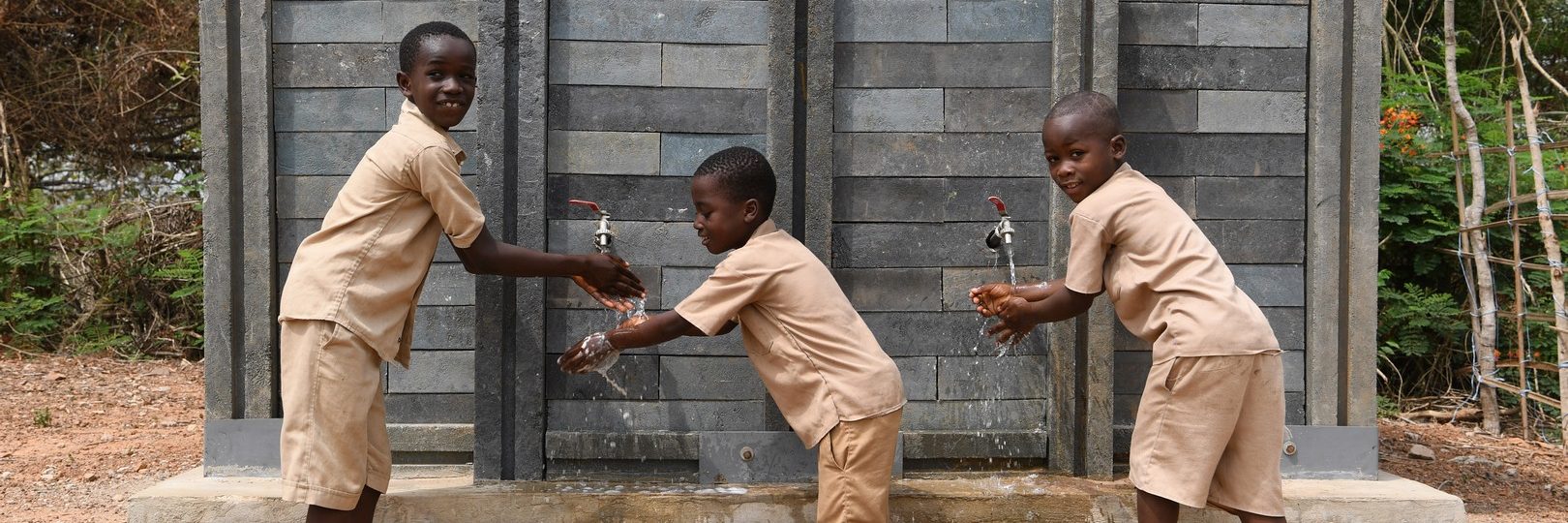
On the ground
Educational crisis, poverty, and pollution.
Côte d’Ivoire is experiencing an educational crisis. Schoolchildren finish their academic cycle without sufficient knowledge, and not all have access on equal terms. This situation is directly related to the lack of investment in quality early childhood education; Consequently, when boys and girls start primary school, they already have delays in the competencies and skills they need to thrive. The need for more teachers and their specific low qualifications for early childhood education is another cause of the problem.
The educational system in Côte d’Ivoire is one of the most unequal in Africa, and two million girls and boys are outside a system burdened by substantial gender inequalities. This occurs in rural areas, where there is a notable scarcity of school environments for children. Schools also prevent some families from choosing not to enroll their children since the cost of schooling is high, and the state spends less than 2% on education for early childhood education.
Specifically, the northwestern area of the Ivory Coast is characterized by having the highest poverty rates in the country (61%). There, the scant investment in economic and social infrastructure or human resources is clearly insufficient, and public facilities need to be better distributed, limiting access to primary education and health services.
As for schools, there are areas in which, for a population of nearly 200,000 inhabitants, there are only 78 infant centers, 146 classrooms, 4,321 students, and 171 teachers. Almost 80% of boys and girls have to travel more than 15 km to get to school. One in five schools needs to be completed, only 46% of the centers have a drinking water supply point, and only 50% have proper sanitation facilities.
In general, the primary cycles are not fully taught; there is a lack of facilities, and the qualified personnel claim with frequent strikes the lack of resources and decent wages. One piece of information is especially relevant: six out of ten impoverished people have yet to receive an education.
This situation affects poor rural households more, where girls have only a 2% probability of completing secondary school, compared to 49% of rich urban boys.
The risk of not going to school in the Northwest region is 54.6%, a figure that is one of the highest in the country and mainly affects girls.
On the other hand, among families and communities, there is a lack of knowledge of the importance that this educational stage has for the integral development of children.
In addition to the deficiencies in education, the lack of employment opportunities and the limited access to essential social services feed the cycle of poverty and inequality, significantly affecting women.
Child morbidity and mortality are dominated by infectious diseases: malaria, diarrheal diseases, and pneumonia. On the other hand, poor waste management and lack of access to sanitation are the leading causes of infectious diseases such as cholera, typhoid fever, and foodborne illnesses.
The project aims to restore the right to an inclusive, equitable, and quality education for the most vulnerable boys and girls and their right to water, sanitation, and hygiene so that they remain in school and can complete their education with guarantees. To this end, we focus on creating welcoming, healthy, and safe school environments, building water, sanitation, and hygiene infrastructures in an eco-sustainable way and from a gender perspective, promoting community involvement in education and strengthening the school community (especially women) to achieve these rights.
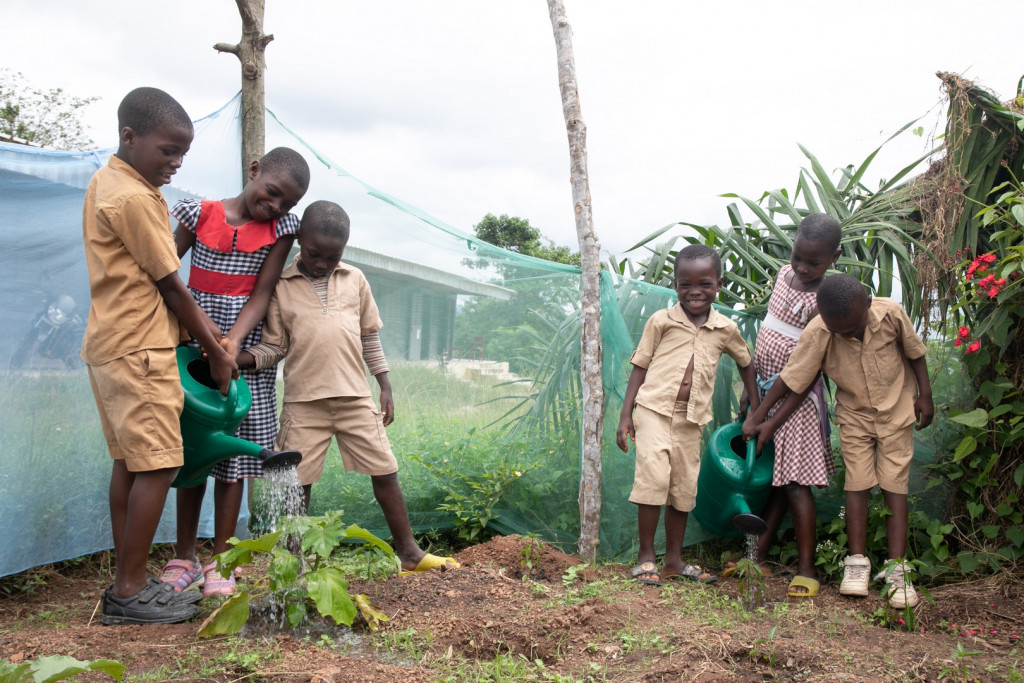
In detail
The nursery classrooms are built following the principles of UNICEF’s Child Friendly Schools. The objective is to create safe, welcoming, integrating, and stimulating environments.
We build them in an eco-sustainable way, with bricks made from recycled plastic. There will be sanitation facilities in three primary schools in the Savanes area, which also already have classrooms made with recycled plastic bricks and have been supported by Spanish cooperation through UNICEF Spain.
So that the school environments created are also healthy, we will equip the new classrooms with a supply of drinking water and sanitation adapted to the ages of the minors who will use them. This will promote their human rights to health, water, and sanitation.
We will also improve the capacities of teachers so that their work effectively promotes the development and emotional, psychological, and physical well-being of all boys and girls. The aim is to ensure that their work is carried out within the interactive, rights-based, and child-centred pedagogy framework.
The involvement of families, fathers, mothers, and teachers at the level of early childhood education is another of the keys to this project. It is essential to achieve the potential to improve education quality, encourage women’s participation and promote girls’ education.
We will carry out awareness days before and after the construction of the facilities. In this way, we will contribute to increasing the awareness and mobilization of the communities and the connection of the project’s actions with the global agenda of education and water and sanitation.
Approximately the phases of the project are:
- Construction of water points to the network, hole, and manual pump
- Construction Rehabilitation of latrines for girls, boys, and teachers
- Construction sink
- Training for school committees and teachers
- 5. Provision of supplies and hygiene materials
Sustainability Perspectives
The integral strategy of the project includes ecological sustainability as a transversal axis. The first step is the eco-sustainable construction of classrooms and sanitation and hygiene facilities. To this end, UNICEF has established an alliance with Conceptos Plásticos, a Colombian social enterprise specializing in plastic recycling that opened a factory in Abidjan, where today plastic waste is transformed into bricks to build school classrooms such as those contemplated by the project. This type of construction also contributes to raising awareness in schools and the communities they belong to regarding waste separation and recycling in particular and care for the environment in general.
To this, we must add that the construction contracts for the classrooms (already built) and the sanitary facilities include planting trees following the Green Schools model. This has a double purpose since, on the one hand, it covers the need to create shaded spaces and healthy environments, and on the other, it allows education in caring for the environment and awakens environmental awareness in the school community.
The plantation is part of the national program “A school and hectares of the forest,” resulting from collaboration between the Ministry of Water and Forest and the Ministry of Education of Côte d’Ivoire. Its objective is to promote forest plantations in the school environment and favor sustainable development to meet the academic community’s educational, material, and financial needs. As a result of the program, there will be the promotion of respectful behavior with the environment in the national education system and an improvement in the living and working conditions of students and teachers thanks to agroforestry practices.
To complete the sustainability strategy, we will encourage local school groups to lead initiatives in each school that address the issue to consolidate the communities’ awareness and involvement in the long term.
All this is vital due to the environmental degradation experienced by the Ivory Coast, which significantly affects the population in a situation of vulnerability, such as those who benefit from the project. Hence, all the work will be done from and with the communities, the women, and the school community to demand the right to a good and healthy environment.


